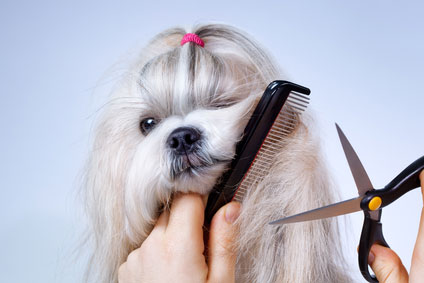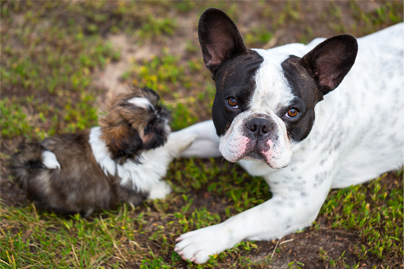
Shih Tzus are social animals, and socializing a new puppy is essential to ensuring your little companion enjoys a long, stress-free, and healthy life. Suppose you do not take the time to socialize your Shih Tzu puppy and do not adequately continue to socialize throughout its lifetime.
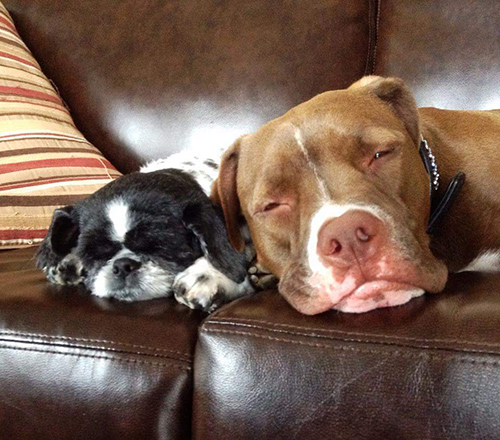
In that case, you run the risk of creating unsavory behavioral issues. These behavioral issues can place your dog in danger and cause it to wear a muzzle in all public settings if it happens to act aggressively toward another animal or person.
Most behavioral issues, such as aggression, could have been avoided if the dog had been properly socialized and trained. However, you risk indulging and babying the adorable Shih Tzu because they are small and easy to carry around. Too much coddling and babying can create an insecure or, worse, unpleasant dog with a fondness for acting out toward anyone who gets too close.
It does not matter what type of dog you have; it is crucial that you establish yourself as the pack leader. Although the Shih Tzu is mostly friendly and peaceful with everyone, there are times when they can become stubborn or unruly.
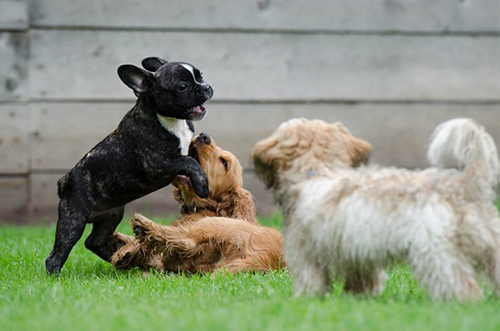
For this reason alone, they need proper socializing and training, which teaches them to respect the word of their human pack leader. Without adequate training, even this small and sturdy canine will gladly take on the role of the pack leader. This scenario needs avoiding because it can get you and your dog into much trouble, mainly if they aggressively bite someone.
Shih Tzus are Social Animals, Even Though They Can Have a Mean Streak
Aggression is not a trait associated with this breed; however, when aggression does show itself, it is usually a stressful situation for both dogs and humans. Stress is unsuitable for humans and dogs; it can shorten lives. Training your dog correctly and at a young age can help keep you and your dog happy and healthy.
Early puppy socialization is essential; therefore, continuing your adult dog’s socialization throughout his lifetime is equally important.
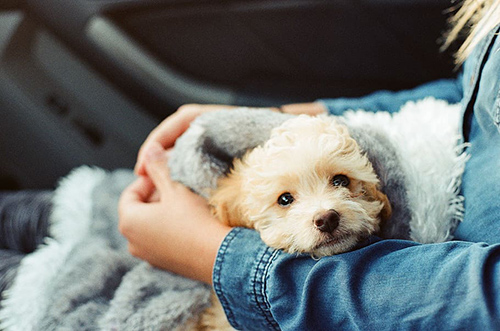
Just as proper socialization helps keep your dog happy and out of trouble, adequate training is also necessary. Do not overlook sufficient training, or you can aid in the creation of an unstable Shih Tzu who growls and barks at everything and thinks he is the pack leader.
Although Shih Tzus are social animals, the breed is extremely versatile and can excel at sports. Most people look at a Shih Tzu and automatically see lap dogs; however, they can hold their own in particular sports and activities just as long as they can spend time with you. Yes! This dog is a real lap dog, but they are no less capable than any of their larger canine companions. My Shih Tzu always takes home the “Best Tricks” prize whenever I enter him in a competition.

Remember that their shortened muzzle can affect their breathing when training and socializing your Shih Tzu. Therefore, exercise caution during training sessions. Also, avoid walking them for too long during sweltering hot weather. But do not let the small stature fool you; they can keep up with you.
Remember to start training and socializing as early as possible. You can begin as soon as you bring them home from the breeder. As a result, you will have given yourself an excellent opportunity to have a happy, eager, loyal, and safe companion at your side. Remember, Shih Tzus are social animals.
DISCLAIMER: The information on shihtzudoginformation.com is intended for general knowledge and informational purposes only. The content is not a substitute for professional veterinary advice, diagnosis, or treatment. Always seek the advice of your veterinarian or other qualified animal health provider with any questions you may have regarding your dog’s health or medical condition.
References
- American Kennel Club breed standard for Shih Tzu: https://www.akc.org/dog-breeds/shih-tzu/
Prevalence of separation anxiety in small breeds:
- Study: “Prevalence of, risk factors for, and owner response to separation-related anxiety in dogs”
- Journal: Journal of Veterinary Behavior
- Volume: 14
- Year: 2016
- https://pubmed.ncbi.nlm.nih.gov/26892560
Social behavior of Shih Tzus with unfamiliar dogs:
- Study: “Behaviour of domestic dog (Canis familiaris) dyads during their first encounter in a neutral area”
- Journal: Applied Animal Behaviour Science
- Volume: 123
- Year: 2010
- https://pubmed.ncbi.nlm.nih.gov/20105457



